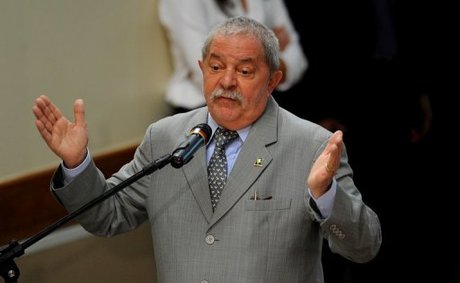Brazil Braces for 'Trial of the Century'
إقرأ هذا الخبر بالعربية
Dozens of former party and government officials go on trial Thursday in Brazil's biggest corruption scandal, which could tarnish the ruling Workers' Party (PT) and its popular ex-president Luiz Inacio Lula da Silva.
The 38 defendants set to appear before Brazil's Supreme Court in what the press here has billed "the trial of the century" are ex-ministers, lawmakers, businessmen and bankers linked to an alleged vote-buying scheme in Congress between 2002 and 2005.
Known as "Mensalao" (big monthly payments), the scandal hits Lula's PT and ruling coalition but more broadly sheds light on the now reviled corrupt practices of the entire political establishment.
In charges that first surfaced in 2005 during Lula's rule, the PT is accused of offering bribes of up to $10,000 to members of Congress in exchange for their votes.
Prosecutors allege that the bribe money was skimmed the advertising budgets of state-owned companies through a company owned by businessman Marcos Valerio de Souza, one of the accused.
The defendants face charges of embezzlement, money laundering, corruption and fraud which could carry sentences of up to 45 years in jail.
Lula, the founder and leader of the leftist party who served as president from 2003 to 2010, is not among the defendants, all of whom are free.
He has always denied any knowledge of the vote-buying scheme and offered public apologies on behalf of his party.
But many of his key advisers, including ex-ministers Jose Dirceu, Luiz Gushiken and Anderson Adauto, as well as a dozen former lawmakers from four allied parties, are in the dock.
Ahead of the trial, Attorney General Roberto Gurgel sent a document to the 11 Supreme Court justices in which he called the case "the most daring and outrageous corruption scheme and embezzlement of public funds ever seen in Brazil," the Folha de Sao Paulo daily reported Saturday.
Analysts say the ruling party, now led by Lula's successor and protégée President Dilma Rousseff, could pay a price in municipal elections scheduled for October.
On trial is "a government which stooped to illegal methods to keep its congressional alliance" and the outcome will be "seen as a sign of punishment or tolerance," said Carlos Pereira, a professor at the prestigious Getulio Vargas foundation.
"It's a window of opportunity for Brazil to show in a credible manner what kind of society it wants: strong, independent institutions, capable of punishing those who stray -- or whether it will always be a society which coddles interests," added Pereira, author of several articles on corruption.
The trial has exposed the inherent weaknesses of Brazil's political system, including private campaign financing and the cost of crafting governing alliances since no party is able to secure a parliamentary majority on its own.
"Lula won the elections, but to govern he needed to forge a coalition with various centrist and rightist parties and this required money to pay campaign debts," explained Carlos Felix de Melo, a political scientist at the Federal University of Minas Gerais state.
The scandal came to light in 2005, when Brazilian Labor Party lawmaker Roberto Jefferson, ensnared in a separate corruption scandal, retaliated by exposing the PT's cash-for-votes scheme to the press.



